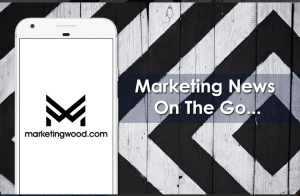Integrated marketing — What does it mean?
Ritu Gupta:
What is integrated marketing and challenges
With Dell the challenge is to be where the target audience is.
The way Youth consumes media has changed.
Amit Sinha Roy:
Intelligence has come from the hit and miss era with marketers bestowed with new and effective tools of communication and marketing.
Ranjit:
Advertising has evolved to an a critical element of messaging.
Framework with consumer at the heart of buying cycle: interested, suspect, prospect, customers, do they need to be reminded, can they become advocates of your product?
Value of vocal consumers for a marketeer has grown.
Tools for channels with a hub and spoke model (inbound marketing)
Intelligence comes from communication engagement.
Why Companies are still having troubles?
– The problem to justify the ROI, the metrics may not always be very clear. Question mark on the offline medium data and campaigns planned.
– Immediate ROI can be critical
– With Social media measurement, sentiment analysis the measurement is getting more accurate.
– Physical demos and personal interaction is still important.
– Two types of Marketeers: who are already generating money online and those who are joining the online league.
– Consumers decision cyle is still in transition phase, purchase decisions through new age touch points are dependant.
– Technology helping the consumers against interruptive advertising
– Educating the stakeholders is one of the biggest challenges. The smartphone and Tablets powered user understand the power of communication.
– Use cases are very important to demostrate the capabilities and improve adaptabilities.
– There is the difference who earn and consume the money. The youth has the leading edge and more adaptable when it comes to technology.
– People needs to be taught and demostrated as how it will work for him/her.
– Coming out of ‘Jugaad’ and trying to fullfill the new age consumer’s needs.
– Scale is the challenge which business leaders still face.
– Content marketing is moving towards relevance, what is the customer looking for. In some cases they may not know what they are looking for.
– Product managers are keen on talking about the technical specification, the difference is what will the consumer understand about the product.
– Why do you need to do Content Marketing?
Content marketing is not about selling something upfront but forging a relationship in long term.
As a brand you need to be relevant.
Content marketing should add value.
Levels of involvment and engagement will be different.
It has to be share worthy, otherwise the whole objective is lost.
The last mile is most difficult, content is the rubber.
Audience questions:
– How do we Trust what is being told problem
Trust is based on experience. We do trust a certain brand based on trust. Brand promise is based on many years of consumer experience.
Consumer might be influenced by recommendations and feedback, word of mouth has shifted on to new platform.
The brand has to deliver or the consumer won’t come back.
– Example of B2B integrated marketing
Tata communcation researches usage patterns to recommend for next level of service.Communicate to the customer (cross sell by info available)


